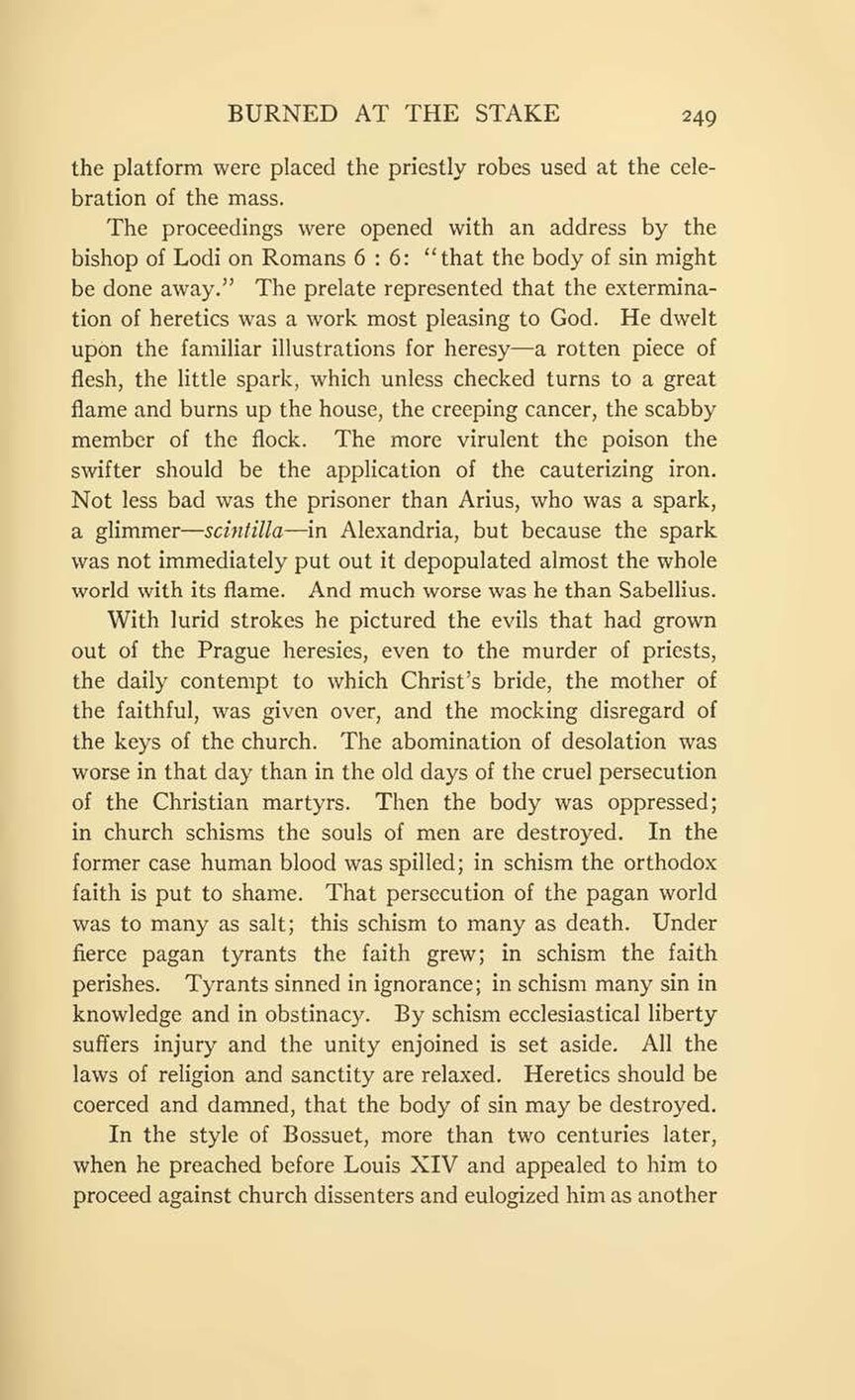the platform were placed the priestly robes used at the celebration of the mass.
The proceedings were opened with an address by the bishop of Lodi on Romans 6: 6: “that the body of sin might be done away.” The prelate represented that the extermination of heretics was a work most pleasing to God. He dwelt upon the familiar illustrations for heresy—a rotten piece of flesh, the little spark, which unless checked turns to a great flame and burns up the house, the creeping cancer, the scabby member of the flock. The more virulent the poison the swifter should be the application of the cauterizing iron. Not less bad was the prisoner than Arius, who was a spark, a glimmer—scintilla—in Alexandria, but because the spark was not immediately put out it depopulated almost the whole world with its flame. And much worse was he than Sabellius.
With lurid strokes he pictured the evils that had grown out of the Prague heresies, even to the murder of priests, the daily contempt to which Christ’s bride, the mother of the faithful, was given over, and the mocking disregard of the keys of the church. The abomination of desolation was worse in that day than in the old days of the cruel persecution of the Christian martyrs. Then the body was oppressed; in church schisms the souls of men are destroyed. In the former case human blood was spilled; in schism the orthodox faith is put to shame. That persecution of the pagan world was to many as salt; this schism to many as death. Under fierce pagan tyrants the faith grew; in schism the faith perishes. Tyrants sinned in ignorance; in schism many sin in knowledge and in obstinacy. By schism ecclesiastical liberty suffers injury and the unity enjoined is set aside. All the laws of religion and sanctity are relaxed. Heretics should be coerced and damned, that the body of sin may be destroyed.
In the style of Bossuet, more than two centuries later, when he preached before Louis XIV and appealed to him to proceed against church dissenters and eulogized him as another
